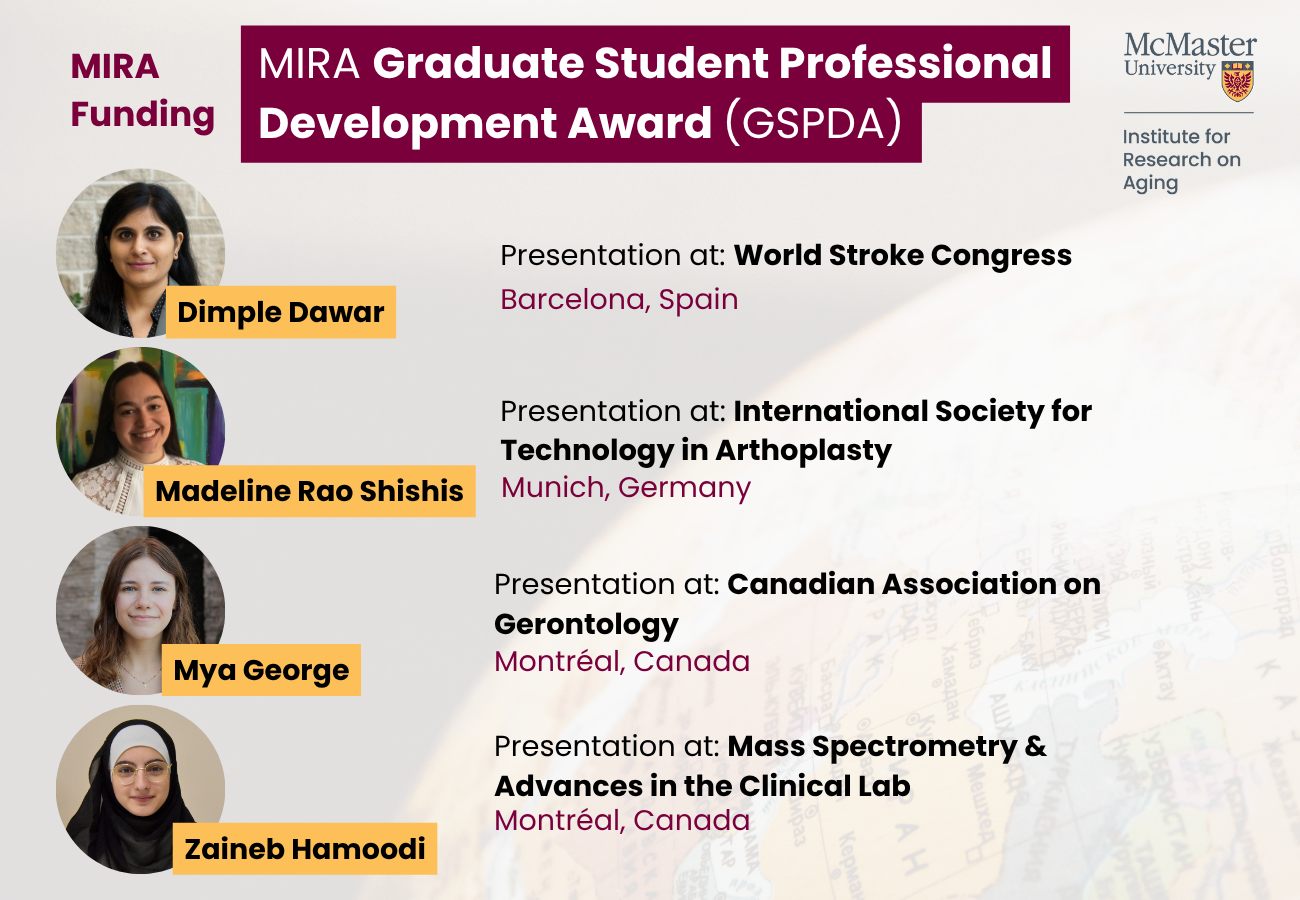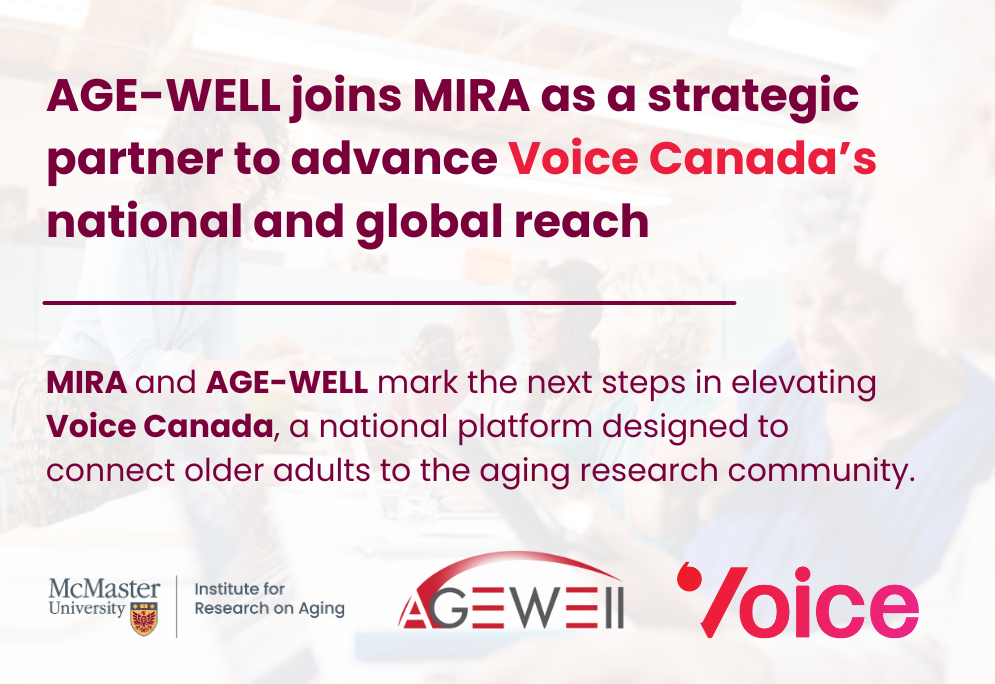
In this following MIRA Highlight of the Month, Sydney Valentino interviews Carly Whitemore, who is a PhD student & Vanier Canada Scholar with the supervision of Dr. Maureen Markle-Reid in the School of Nursing.
Q: What brought you to be a part of the MIRA Trainee network?
As a PhD student trainee in the Aging, Community and Health Research Unit in the School of Nursing, I was encouraged to connect with my colleagues in the MIRA Trainee Network. This group provides opportunities for connection, study, and training and I value the experiences and expertise that we all bring to the network.
Q: Tell us about the research project you are currently working on.
My dissertation work will seek to explain how older adults with multimorbidity and depressive symptoms self-report their health. Through exploration of factors related to resilience, I will use a mixed methodological study design to examine Canadian Longitudinal Study on Aging data as well as interview data. Self-reported health, captured as a response to the question, “In general, would you say that your health is: excellent, very good, good, fair, or poor?” is predictive of morbidity and mortality. Understanding how various factors shape this measure will help explain why some older adults with high levels of multimorbidity and/or depressive symptoms continue to view their health positively.
Q: How does this proposed project relate to the aging population?
As adults age, the likelihood of being diagnosed with a chronic condition increases, and thus, the likelihood of living with multimorbidity (2 or more chronic conditions) increases. Among older adults with multimorbidity, upwards of 40% are estimated to also have depressive symptoms. With a growing older adult population in Canada, there is a need to better understand how resilience shapes the health of this population.
Q: What is the ultimate goal or purpose of this research?
Through mixed methodological study, the factors that shape, and the ways that these factors shape self-reported health will be better understood. To date, there has been literature that looks to the associations of specific factors with self-reported health, but it is not fully understood how these factors shape (e.g., how they interact with or modify) that relationship.
Q: Can this research be applied to have a real world impact?
I hope so. There is a growing body of literature on “resiliency training” and I suspect that, with this understanding, factors related to resilience and self-reported health among this population could inform interventions to enhance resilience.
This ​blog post was first published by the MIRA Trainee Network. Read the ​original article.​​

